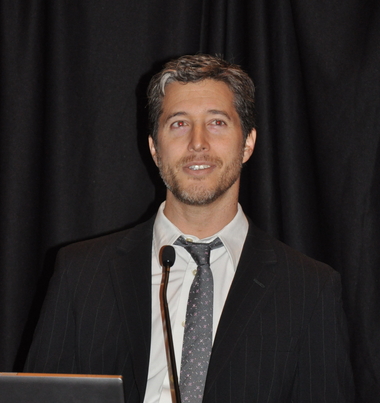LGBT Summit brings hope for change to community

by Robin Dorner
Editor in Chief
Kudos to the Oklahoma Department of Mental Health and Substance Abuse Services (ODMHSAS). Somehow, in the state of Oklahoma, they pulled off an LGBT Summit to help address the issues of suicide prevention, substance abuse prevention and other behavioral health issues affecting the LGBT community.
According to lead organizer for the event, David Heath Holt, ODMHSAS Coordinator of Community Advocacy & Wellness, the summit developed out of an LGBT workshop held earlier in the year and was funded by a substance abuse prevention grant.
“I took the lead role and helped the Summit idea further develop into an intra-agency collaboration between our suicide prevention, substance abuse prevention, and children's behavioral health funding,” said Holt. “These three domains all tie into the overall effort to address the prevention of substance abuse. And viola, the Summit was born!”
“LGBT individuals are significantly higher risk and are exactly the right community to address,” said Terri White, ODMHSAS Commissioner. “I hope we don’t have one other person who has another problem who strives for recovery in this state.”
White added that statistically, 42% of LGBT youth said they have suicidal thoughts and that, in general, people struggling with mental health and substance abuse issues have a host of other health issues.
“Because of heightened risk factors, that is why I am so glad to see so many people here today.”
Featured speakers for the event were native Oklahomans Randy Roberts Potts and Brian Altman.
Altman lives in Washington, D.C., where he leads the Substance Abuse and Mental Health Services Administration’s (SAMHSA) Sexual and Gender Minority Interest Group in addition to being the Legislative Director for SAMHSA.
Potts lives in Texas, is a freelance writer and former Social Worker who wrote about his coming out experience as the gay grandson of televangelist Oral Roberts in the recent “It Gets Better” book. He spends much of his life trying to spread a message of hope to gay youth.
“20-40 percent of homeless youth are LGBT,” he said, adding “We need to keep these youth in the home.”
“I didn’t come out to myself until I was 27 years old and then reality came crashing down on me. For the next several years, I lived in constant fear and thoughts of suicide. I did not want to move on. Three years later I finally came out fully and moved on.”
Potts had an uncle who had committed suicide. He recently learned his uncles’ life paralleled his in that he had been married, had children and his uncle was also gay.
Visiting speaker was Philip T. McCabe, Board President, The Association of Lesbian, Gay, Bisexual, Transgender Addiction Professionals & Their Allies (NALGAP). Based in New Jersey, the NALGAP is dedicated to the prevention and treatment of alcoholism, substance abuse, and other addictions in lesbian, gay, bisexual, transgender, queer communities. McCabe speaks across the nation about substance use, abuse, prevalence and stategies for prevention in the LGBT community.
Other breakout sessions for the summit included speakers from organizations representing groups from across the state. Based on outcomes from the original workshop, many people and resources felt disconnected from the awareness of our service providers.
“I had no idea what all the Oklahomans for Equality (OkEq) did,” said attendee Jeremy Crites. “They had 168 people attend their coming out workshop over a nine month period, they have groups led by grad-level interns and 60 percent of their programs focus on socialization.”
OkEq is based in Tulsa, OK. Crites said he was surprised to hear they offer a very extensive array of services and programming even though he knew the center was there.
ODMHSAS offers a wide variety of services. For information, visit www.ok.gov/odmhsas or call 1-800-522-9054.





